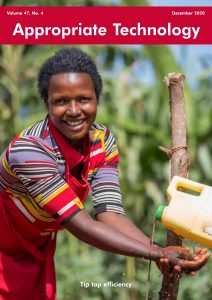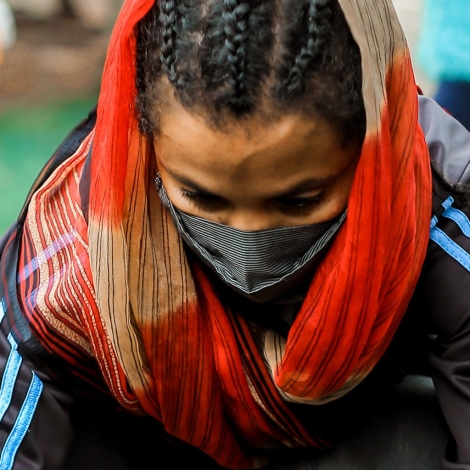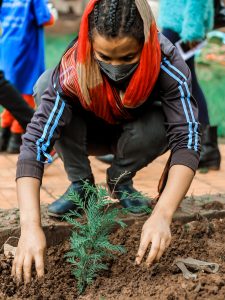 Editor’s note: This article is a reprint of a page that appears in print in Appropriate Technology, Vol 47, No. 3. It is published here with permission as a part of our collaboration with the magazine. For more, please see the magazine’s site: www.appropriate-technology.com.
Editor’s note: This article is a reprint of a page that appears in print in Appropriate Technology, Vol 47, No. 3. It is published here with permission as a part of our collaboration with the magazine. For more, please see the magazine’s site: www.appropriate-technology.com.
Living with the impact of COVID-19 throughout 2020 has been demanding for us all, disrupting the best-laid plans of the New Year; destroying the hopes of an early easing of infection risks and restrictions as the year wore on. For some, the reach of the pandemic has been devastating, causing the loss of loved ones or the reality of long-term illness. We can only express our sympathy for those who have truly suffered this year, experiencing levels of pain and loss beyond the discomfort and inconvenience which the rest of us have endured, and complained about, as the months have passed.
With the emergence of a growing number of promising vaccines, the prospect of increasing normality in 2021 is already providing some comfort. The scientific effort, and the high-profile funding which made it possible, has been impressive. It shows what can be done when the need is urgent enough, or when it is perceived as warranting our full attention.
Overseas aid
When finalizing each issue of Appropriate Technology, I always leave one page open to accommodate any last-minute items of late-developing news. It’s disheartening that the late news this time concerned the UK Government’s plans to cut spending on overseas aid. The apparent rationale is that committing .7 percent of the country’s national income to support overseas aid, has become ‘difficult to justify’ to the British people, given current economic pressures.
Some will agree with that reasoning and others won’t, as we report on page 5. The subject is also given an airing on pages 10 & 14, courtesy of Preet Kaur Gill, UK Shadow Secretary of State for International Development, and German development aid consultant, Christian Meyer zu Natrup.
“Now is the time to make a stand and demand that the world we live in is based on common humanity and a desire that no one is left behind,” said Ms Gill.
Mr zu Natrup commented: “We are now projecting a 20% to 30% reduction in aid funding from the UK over the next five years.”
If all that sounds too negative regarding UK aid, I should point out that our regular ‘Practical Action’ report (pages 28-31) features the launch of an appeal to help communities in Nepal which are suffering the harshest impacts of climate change. As part of this work, every pound raised by the appeal is set to be matched by the UK government, up to a total of £2 million.
I’ll leave you to read and decide for yourselves – and perhaps send us a comment to include in our online coverage.
AidEx
We’re delighted that, as media partners to AidEx, we’ve been able to devote six pages of this issue to coverage of the organisation’s November webinar series. This was staged as an online offering for the aid and development sector when the physical AidEx event, set to be held in Brussels, had to be postponed due to COVID-19 restrictions.
The 11-session program, which drew on the expertise of no fewer than 50 speakers, was applauded by delegates as a hugely valuable insight into how aid and development organisations have been coping in this most difficult of years.
Besides following the core content, it was entertaining to witness the high level of networking in the various session chat rooms. Not the real event, of course, which will be back next year. But a pretty good one-off offering.
And now to 2021
At the close of an ‘unprecedented’ 2020, wishing everyone a happy and progressive 2021 will feel very good indeed. The strength and resilience shown by all involved in the industry has been impressive throughout the past 12 months. Keeping projects on course hasn’t been easy, so well done to all.


